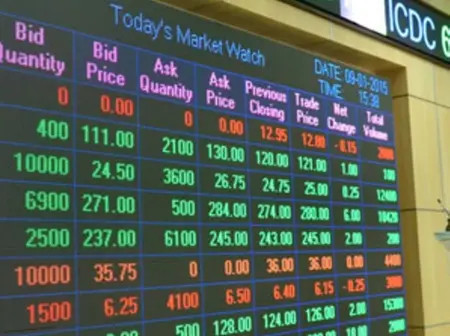The Nairobi Securities Exchange Plc has reduced barriers for retail investors to NSE derivatives market segment to increase their participation and unlock new opportunities for this class of investors. “By reducing initial margin requirements, we are democratising access to sophisticated financial instruments, fostering innovation, and accelerating the growth of a vibrant, inclusive market interest rate, market index, currency, or real estate,” the NSE says.
By lowering entry requirements to the derivatives market, the NSE said in a statement that it projects a surge in retail participation, a 50% increase in active derivatives trading accounts within the next 12 months. The NSE also expects trading activity in derivatives to go up by 30% this year.
The NSE has invited retail investors, brokers, and market participants to seize this opportunity and explore the benefits of derivatives trading. “Activity in the derivatives market has been subdued due to high margins, thin liquidity, few products, low awareness and little institutional use. It is this low awareness that has damped confidence in derivatives trading,” CFA Dedan Maina told Business Today.
The NSE sets initial margin requirements for derivatives trading, which vary by company and contract expiry date. The Nairobi bourse reviews and updates these margin requirements quarterly. These requirements act as a good faith deposit to cover potential losses.
A derivative is a financial contract whose value is derived or reliant on an underlying asset’s value, hence its name a “derivative” contract. The underlying asset may be a commodity, bond or equity. The NSE derivatives market includes single-stock futures and index futures.
As at September 24th 2025, the derivatives turnover stood at KSh 3.5 million, with 26 deals and a volume of 233 contracts. Among securities that trade as single stock futures at the NSE include NCBA Group Plc, Co-operative Bank of Kenya, Standard Chartered Bank Kenya Limited (SCBK) and I&M Group. Trading NEXT Single Stock Futures provides a hedge against unfavourable share price movements. They are more liquid and easy to trade instruments; while positions in single stock futures allow investors to benefit from downwards or upwards movement of share prices. Investors can have exposure to share price movements without owning the underlying share.
Securities already trading as single stock futures include Safaricom Plc (SCOM), KCB Group Plc (KCBG), Equity Group Holdings Plc (EQTY), ABSA Bank Kenya Plc (ABSA), East African Breweries Ltd (EABL), British American Tobacco Kenya Plc (BATK), as well as the NSE 25 Share Index (N25I) and Mini NSE 25 Share Index (25MN).
NEXT was set up due to increased integration between the Kenyan financial markets and global markets. The platform shields investors from increased volatility in asset prices in local and international financial markets while meeting the need for more sophisticated risk management tools and strategies.
NEXT enables one to trade in Equity Index Futures and Single Stock Futures.
The Nairobi derivatives market began trading on Thursday, 4th July 2019, with three single stock futures contracts. This followed the successful completion of a six-month Derivatives Exchange Pilot Test between July and December 2018. The derivatives segment at the NSE followed that at the Johannesburg Stock Exchange (JSE) in South Africa. Others who have since followed Kenya include Nigeria and Ghana.

Leave a Reply